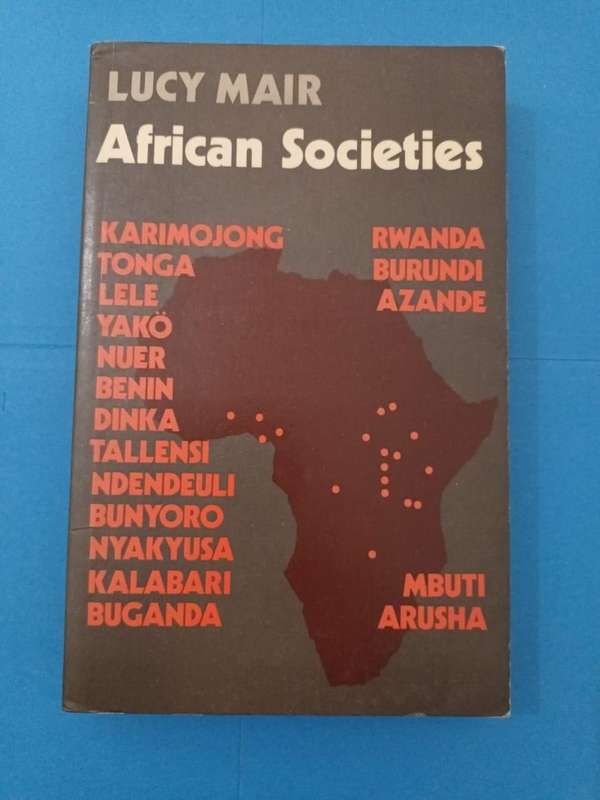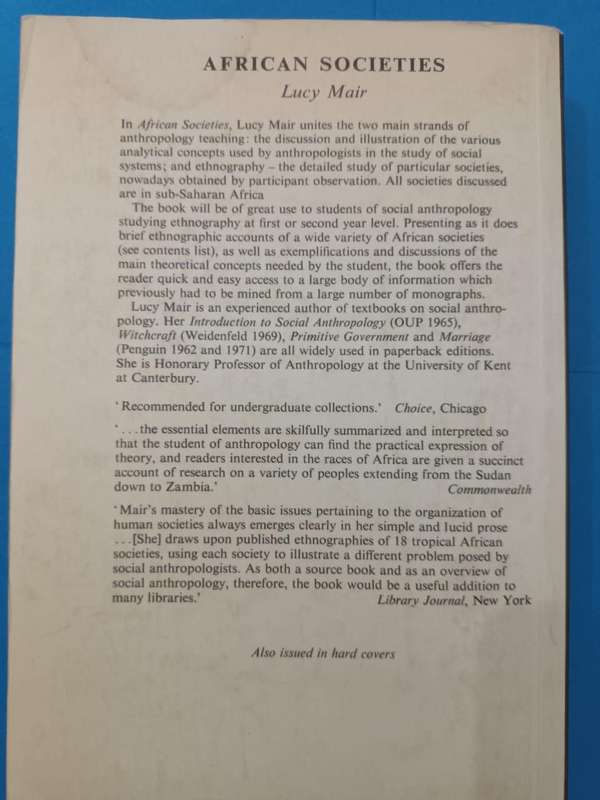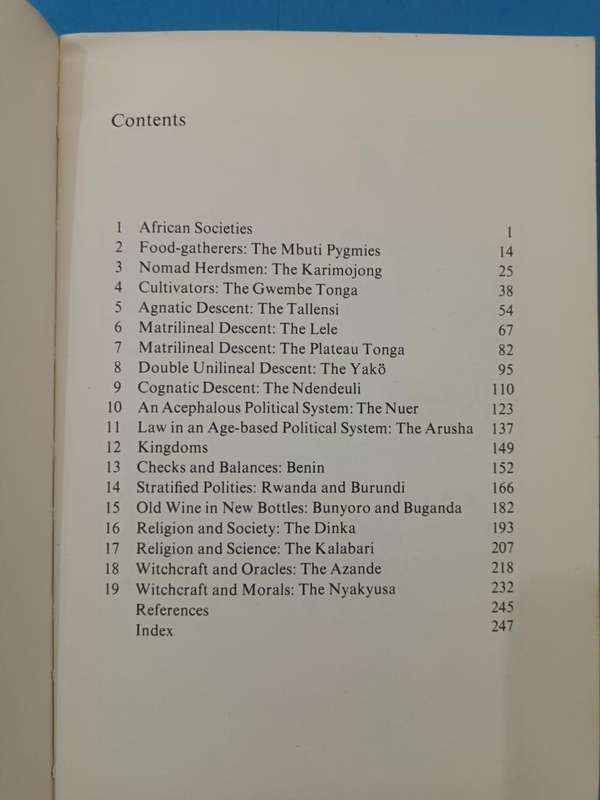





African Societies (Ethnography, Anthropology)
Check my rate
| Main centres: | 1-3 business days |
| Regional areas: | 3-4 business days |
| Remote areas: | 3-5 business days |






| Main centres: | 1-3 business days |
| Regional areas: | 3-4 business days |
| Remote areas: | 3-5 business days |
Lucy Mair, African Societies. Cambridge: Cambridge University Press, 1976.
Card wraps, 251 pages.
Light tide-mark in the top margin of the lower wrap and the margins of the last few leaves. Text-block edges a little foxed. Good condition.
'In African Societies, Lucy Mair unites the two main strands of anthropology teaching: the discussion and illustration of the various analytical concepts used by anthropologists in the study of social systems; and ethnography - the detailed study of particular societies, nowadays obtained by participant observation. All societies discussed are in sub-Saharan Africa The book will be of great use to students of social anthropology studying ethnography at first or second year level. Presenting as it does brief ethnographic accounts of a wide variety of African societies (see contents list), as well as exemplifications and discussions of the main theoretical concepts needed by the student, the book offers the reader quick and easy access to a large body of information which previously had to be mined from a large number of monographs. Lucy Mair is an experienced author of textbooks on social anthropology. Her Introduction to Social Anthropology (OUP 1965), Witchcraft (Weidenfeld 1969), Primitive Government and Marriage (Penguin 1962 and 1971) are all widely used in paperback editions. She is Honorary Professor of Anthropology at the University of Kent at Canterbury.
'"Recommended for undergraduate collections." Choice, Chicago
'"...the essential elements are skilfully summarized and interpreted so that the student of anthropology can find the practical expression of theory, and readers interested in the races of Africa are given a succinct account of research on a variety of peoples extending from the Sudan down to Zambia." Commonwealth
'"Mair's mastery of the basic issues pertaining to the organization of human societies always emerges clearly in her simple and lucid prose ...[She] draws upon published ethnographies of 18 tropical African societies, using each society to illustrate a different problem posed by social anthropologists. As both a source book and as an overview of social anthropology, therefore, the book would be a useful addition to many libraries." Library Journal, New York.'